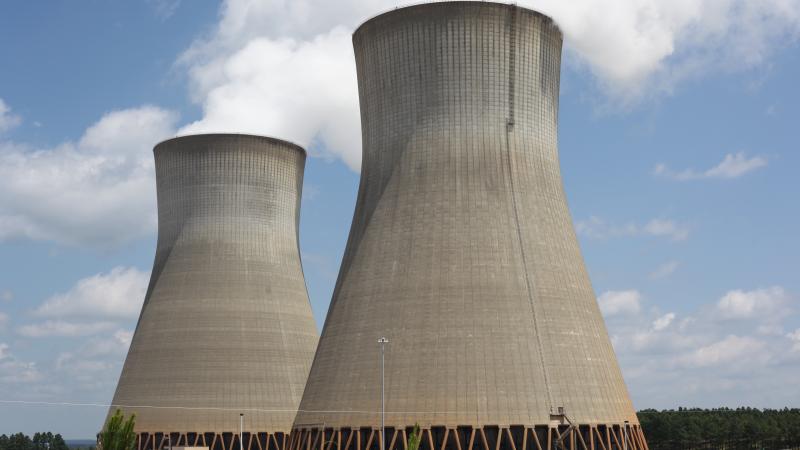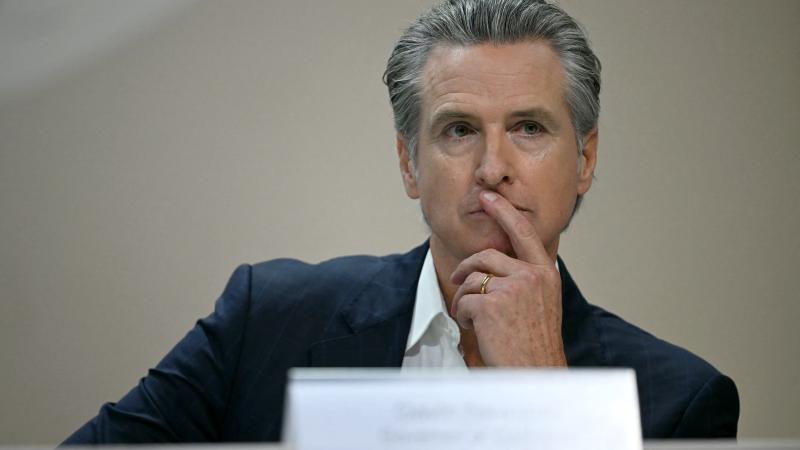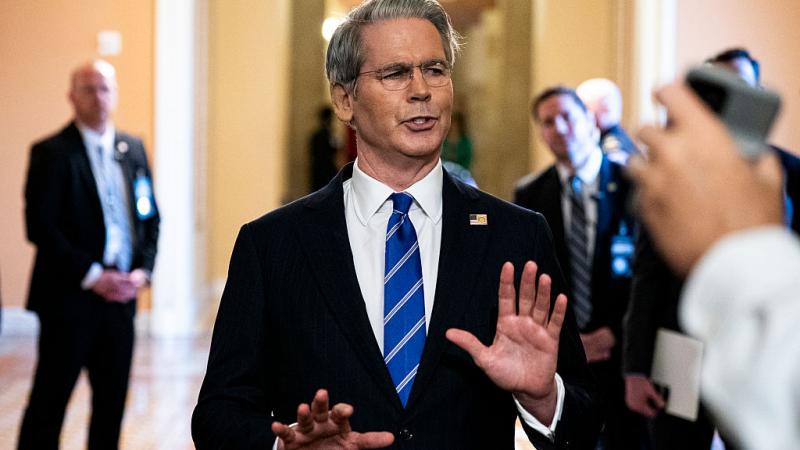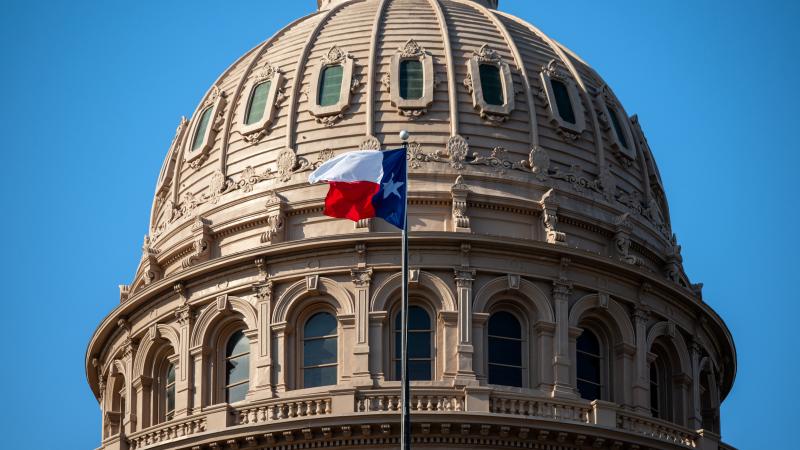Media touted paper that climate change will make world poorer, but kept silent as flaws are revealed
Multiple media outlets reported on a study concluding that climate change would reduce GDP by 19% over the next 24 years, compared to what it would have been without global warming. Now multiple analyses have found the influential study flawed, and most aren't reporting on the scandal.
When a study published last year in the peer-reviewed journal Nature found that climate change would cost the globe $38 trillion per year by 2050 — ultimately reducing GDP by 19% over the next 24 years — many media outlets were quick to jump on it.
“Climate change will make you poorer,” CNN warned. The Guardian reported on the study under the headline, “Climate crisis: average world incomes to diminish by nearly a fifth by 2050.” Reuters and Forbes also carried articles on the study, and the Associated Press reported that “New study calculates climate change’s economic bite will hit about $38 trillion a year by 2049.” According to the activist publication Carbon Brief, only one other study received more mentions in the media in 2024.
However, the study — referred to as "the Potsdam study" — has since been found to have serious flaws. When these are corrected, according to the researchers who uncovered the problems, it reduces the study’s estimate of climate "damages" through 2100 by two-thirds. This means the estimates aren’t statistically different from zero.
The study has been cited by organizations influencing policy across the globe, including the World Bank, the Organization for Economic Co-operation and Development, and the U.S. Congressional Budget Office. Sen. Sheldon Whitehouse, D-R.I., cited the study last year and again in July — both times entering the study into the Congressional Record.
While The Washington Post reported on the errors, none of the other outlets have so far revisited the story.
Flaws called "devastating" to paper's conclusions
Dr. Roger Pielke, Jr., senior fellow at the American Enterprise Institute, explained in his “The Honest Broker” Substack that the flaws the researchers scrutinizing the paper found are “devastating” to the paper's conclusions. Pielke also points out that the study relies on an emissions scenario that is considered “implausibly extreme.”
Another analysis, by Greg Hopper, senior fellow of the Bank Policy Institute, also found “no basis” for the study’s projections. A third analysis published in Nature last week concluded that the study’s results are “statistically insignificant when properly corrected,” and it doesn’t provide “robust empirical evidence needed to inform climate policy.”
Pielke points out that the study’s flaws were identified in its peer-review process, with one reviewer warning, “I have a hard time believing the results, which seem unintuitively large given damages aren’t perfectly persistent.”
The authors of the study, researchers at the Potsdam Institute for Climate Impact Research in Germany, told the Post that they stand by its conclusions. They claimed that they corrected the data, which made the estimates “more robust.”
Pielke said that this “do over” analysis is a tacit admission by the authors that their original estimates no longer have merit. Hopper was also critical of the updated analysis. “Science doesn’t work by changing the setup of an experiment to get the answer you want. This approach is antithetical to science,” he wrote.
Flawed paper still part of economic planning
Hopper explains that the Network for the Greening of the Financial System (NGFS), which is a consortium of central banks and regulatory supervisors across the globe, incorporated a new climate damage function based on the flawed study.
NGFS's function sets out climate risk expectations that banks must meet, and if they’re found to be non-compliant, they can be fined. Fortunately for U.S. financial institutions, the Federal Reserve and other U.S. regulators pulled out of NGFS earlier this year.
The Banking Policy Institute had published a study critical of the Potsdam study in December 2024. According to Hopper, the study was sent to the editors at Nature for consideration and comment, but BPI received no response. Sometime later, Nature put up a warning stating that “Readers are alerted that the reliability of data and methodology presented in this manuscript is currently in question.” Despite the caveat, Hopper wrote, the NGFS did not remove the damage function from its climate scenarios.
Sen. Whitehouse, who touted the study, didn’t respond to requests for comment asking if he intends to correct the Congressional Record in light of the revelations that the study he championed is flawed.
Media looks away
Despite questions being raised about the reliability of the study going back at least to December 2024, only The Washington Post has reported on the issues. Just the News reached out to the Associated Press to ask if its reporters intended to cover the controversy.
The Associated Press received $8 million from climate advocacy groups in 2022 directly in support of its climate and energy reporting. These political advocacy groups include the William and Flora Hewlett Foundation, Quadrivium and the Rockefeller Foundation, which has pledged over $1 billion between 2023 and 2028 to eliminate the use of fossil fuels.
The Associated Press discloses this funding at the bottom of articles on climate and energy issues, including its report on the Potsdam study. However, it refers to the groups simply as "philanthropies" without any mention of their pro-green energy agendas. A spokesperson for the Associated Press didn’t say whether its reporters would cover the criticisms of the study, but the spokesperson stated these funding sources have no influence over its editorial directions.
“AP works with dozens of foundations and nonprofits to deepen its news coverage on important topics like education, religion and climate. In such collaborations, AP retains complete editorial control over all content. No funder has any influence over AP journalism, nor would we accept philanthropic funding from any organization that does not respect our clear and public standards,” the spokesperson said.
Pielke wrote that studies sometimes have errors, and it’s not a scandal that the paper made its way through the peer-review process. The scandal, he said, is that a flawed paper continues to have influence over policies. For the time being, it also doesn’t appear the media outlets that trumpeted the original analysis’ findings are interested in informing the public about the scandal.
The Facts Inside Our Reporter's Notebook
Links
- study published last year
- CNN warned
- Guardian reported
- Reuters
- Forbes
- Associated Press reported
- Carbon Brief
- according to the researchers
- World Bank
- Organization for Economic Co-operation and Development
- Congressional Budget Office
- study last year
- again in July
- Washington Post reported
- The Honest Broker
- Another analysis
- Greg Hopper
- third analysis published in Nature
- peer-review process
- he wrote
- published a study critical
- $8 million from climate advocacy groups in 2022
- William and Flora Hewlett Foundation
- Quadrivium
- which has pledged over $1 billion















